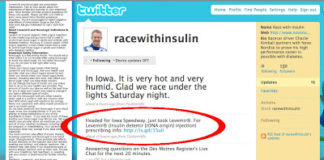The Pharma Marketing News 2005 HOT ISSUE Survey reveals some insight into the issues of most concern to pharmaceutical marketers in 2005. At the top of the list are drug prices and brand differentiation. (You can take the survey and see more detailed results by clicking here.)
Drug Prices
The pharma industry is facing mounting criticism over drug prices. There’s interest in Congress in passing drug importation laws allowing US citizens to import presumably cheaper Rx drugs from Canada (see, however, “Canada: Mad Cows Yes, Drugs No“). In 2006 the Medicare Moderization Act kicks in with government paying for elder drug benefits and this is sure to put pressure on pharma companies to lower prices.
So it’s not surprising that 78% of respondents to our survey believe that drug prices will have a high or very high impact on the course of the pharmaceutical industry in 2005. Interestingly, however, only 37% of pharmaceutical company respondents feel that way! 63% of these respondents felt declining profits would have a high or very high impact.
In the minds of pharma execs, lower drug prices equate to lower profits.It’s a knee-jerk reaction.
I am sure Sam Walton, if he were alive today, would take issue with that thinking and would advocate cost-cutting measures to maintain profits while lowering prices — a philosophy that has made Mal Mart extremely profitable. (Although I must say that I am not happy about some of Wal Mart’s cost-cutting techniques, especially hiring illegal aliens and squeezing workers’ wages and benefits).
Drug Firms Unveil Discount Program: The Wall Street Journal today reports that ten drug companies are launching a discount program for as many as 36 million low-income Americans who don’t have health coverage. This is well and good, but will it improve the image of drug companies?
For more information on the Pharma Marketing perspective on drug prices, please see the Drug Prices Discussion Thread and the Oped piece “The Price of Drugs.”
Brand Differentiation
Big Pharma companies rely heavily on big brands (“blockbusters” with over $1 billion in worldwide sales). Brands are built primarily through direct-to-consumer (DTC) advertising, which is practically limited to the US market only (see “The End of DTC as We Know It“).
Critics have claimed that the pharma industry is no longer innovative and strives to increase profits by copying other brands to produce “Me Too” drugs (see, for example, “The Truth About Drug Companies and What To Do About It” AND “Vioxx Withdrawal and the Me-Too Drug Domino Effect“). This leads to the problem of brand differentiation because of the similar indications and side effects of Me Too drugs. Vioxx and Celebrex are classic examples (see “Cox-2’s Die Hard: With a Vengeance“).
It’s no wonder, therefore, that 67% of the pharmaceutical company respondents to our survey thought that brand differentiation would have a high or very high impact on the course of the pharmaceutical industry in 2005. This was much higher than the 41% of respondents overall. Only 20% of marketing agency or consultant respondents felt that brand differentiation would have a high or very high impact on pharma. This is not the first time that I have found a disparity between consultants/outside marketing pros and people within the industry itself.
You can take the survey and see more detailed results by clicking here.









![6 Digital Tools at the Center of Healthcare Digitalization [INFOGRAPHIC]](http://ec2-54-175-84-28.compute-1.amazonaws.com/pharma-mkting.com/wp-content/uploads/2021/04/6DigitalTools_600px-100x70.jpg)




